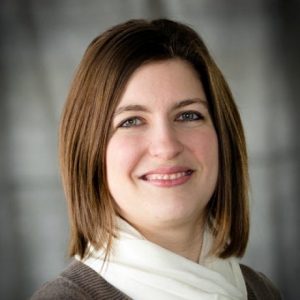(Part 3 in a 4-part series)
By: JESSICA SMITH, MA, LMFT, LADC, BC-TMH. Licensed Marriage and Family Therapist.
Licensed Alcohol and Drug Counselor. Clinical Director
The search for Dual Diagnosis treatment begins once the assessment is completed and a co-occurring disorder is confirmed. If your research leads you to the internet, you will find a myriad of programs specializing in dual diagnosis to consider that include different approaches to care, such as: long-term rehabilitation inpatient programs, short-term inpatient treatment, intensive outpatient treatment, support groups and outpatient therapy. Some focus only on substance use disorders and some may focus only on mental health. For a truly co-occurring diagnosis it is essential to find a treatment solution that integrates both mental health and substance use disorders equally.
Understanding the various approaches and available levels of care is critical so you can choose the program that is most appropriate for you or the person you wish to refer.
Understand levels of care
- The first level of care to consider is Dual Diagnosis outpatient treatment for chemical dependency (CD) and mental health (MH). Outpatient treatment involves meeting once or twice weekly with counselors who have expertise in mental health and chemical dependency. These are individual meetings.
- The next level of care is an intensive outpatient program, or “IOP.” This option is designed to provide a “higher dose” of care so clients can make more progress toward long-term recovery, faster. Christian Family Solutions Adult Dual Diagnosis Intensive Outpatient Program is an example of an IOP. A tremendous benefit of an IOP is that clients have the ability to live at home while participating in intensive treatment. The treatment is offered in a comfortable clinic setting. At CFS, clients participate in rigorous, individual and group therapy sessions four days a week in collaboration with multiple counselors and have access to a psychiatrist when needed.
- The next step up in care is inpatient care, such as a Long-term Rehabilitation Inpatient Program. This model is necessary for clients who need to be stabilized, out of their own environment, and in a safe place for treatment. Treatment is delivered in a residential facility where patients reside for various lengths of time depending on their needs and the program. Most centers include family, individual and group sessions incorporating traditional and non-traditional therapies. Residential facilities are all unique in accommodations provided such as housing options, meals and activities.
Support groups and recovery-focused organizations
There are valuable support groups and sobriety focused organizations that help individuals overcome addiction. These are important resources for those living with co-occurring disorders but only after they have graduated from a program offering a higher level of care. Many clinicians working in more intensive treatment programs will connect their clients with these community groups upon graduation.
As you ponder your treatment choices, it’s important to also consider logistics such as housing options, time commitment, transportation, location, etc. Any one of these hurdles could prevent someone from starting treatment. Part 2 of this series will help you overcome barriers that interfere with long-term recovery.
The cost of treatment and focus of care will also be important factors to weigh.
Medical insurance
-
- Medical insurance is generally accepted for programs that provide evidence-based treatment by licensed professionals based on a medical model.
- Medical insurance is generally not accepted by support groups that are typically led by non-medical professionals and provide more emotional support.
Focus of care
-
-
- Recovery support groups help individuals cope with their addictions. Addiction is the focus.
- Dual Diagnosis treatment offers treatment for addiction and for healing for the underlying mental health issues that exacerbate the substance use disorder. It targets the source of the hurt.
Once you select the right level of care, you can learn more specifics about the treatment program. Just as each person is unique, each program is unique offering unique features. For example, the Dual Diagnosis at Christian Family Solutions incorporates these distinctive features:
-
-
- Individualized, evidence-based treatment for both mental health and substance abuse disorders
- Client-driven pace and accountability following “Path to Recovery”
- Family, group, and individual sessions incorporated into treatment, to help the individual with environmental challenges
- Integration of spirituality into treatment, meeting the client where he or she is spiritually
-
That last bullet point regarding spirituality may be really important to your treatment. The role of spirituality with regard to recovery from addiction has become widely known from its use in Alcoholics Anonymous. According to the Journal of Psychology and Clinical Psychiatry, spirituality has been found to be a driving force in recovery from substance use disorders.
Christian Family Solutions will provide excellent treatment to anyone who asks for care regardless of faith affiliation. What is special about CFS is that treatment providers view each individual as a valued, precious child of God, worthy of respect, grace, boundaries, honesty, and hope. Each individual experiences this outpouring of love. Often, this results in spiritual conversations that lead to deeper healing and better, longer-lasting outcomes – eternal outcomes.
In Part 4 of this series, we’ll explore what effective integration of treatment and spirituality looks like. Untangling the Web of Addiction: The Role of Spirituality in Treatment
 Jessica Smith specializes in trauma, Dialectical Behavior Therapy (DBT), EMDR therapy, relationship issues, and chemical dependency. She joined Christian Family Solutions in 2014.
Jessica Smith specializes in trauma, Dialectical Behavior Therapy (DBT), EMDR therapy, relationship issues, and chemical dependency. She joined Christian Family Solutions in 2014.Jessica received her BA in psychology from Bethany Lutheran College, her MA in Counseling Psychology from Bethel University, and her Marriage and Family Certificate from Bethel Seminary. She has been trained in EMDR therapy and Trauma-Focused Cognitive Behavioral Therapy. Her experience includes providing in-home therapy, outpatient therapy, and intensive outpatient group therapy. She utilizes a systems approach when working with individuals and families and believes that it is essential to understand an individual in the context of their family, family patterns, and environment.
-



